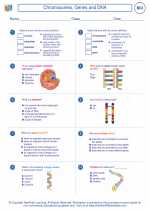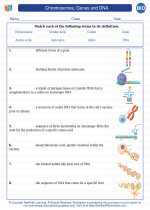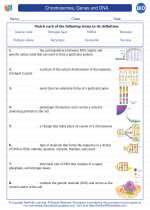Air
Air is the invisible gaseous substance surrounding the earth, a mixture mainly of oxygen and nitrogen. It is essential for the survival of most living organisms, as it is the source of oxygen and a medium for the exchange of gases such as carbon dioxide. Understanding the composition and properties of air is important in biology as it relates to respiration, photosynthesis, and the environment.
Composition of Air
Air is primarily composed of nitrogen (about 78%) and oxygen (about 21%), with trace amounts of other gases such as argon, carbon dioxide, and water vapor. The exact composition can vary slightly depending on location and environmental conditions.
Properties of Air
Air has several important properties that are relevant to biology:
- Pressure: Air exerts pressure due to the weight of the air molecules above. This atmospheric pressure is important for physiological processes in living organisms.
- Density: Air has a certain mass per unit volume, which affects the buoyancy of organisms and the transmission of sound waves.
- Humidity: The amount of water vapor in the air affects the ability of organisms to regulate internal water balance and the process of transpiration in plants.
- Gas Exchange: Air allows for the exchange of oxygen and carbon dioxide in processes such as respiration and photosynthesis.
Importance of Air in Biology
Air plays a crucial role in biological processes, including:
- Respiration: Organisms require oxygen from the air for cellular respiration, which produces energy for essential life processes.
- Photosynthesis: Plants use carbon dioxide from the air to produce glucose, releasing oxygen as a byproduct, which is essential for the survival of many organisms.
- Gas Exchange: The exchange of gases in the respiratory systems of animals and in the stomata of plants relies on the composition and properties of air.
- Environmental Impact: Air quality and pollution can have significant effects on ecosystems and the health of living organisms.
Study Guide
To study the topic of air in biology, consider focusing on the following key points:
- Learn the composition of air and the relative proportions of its major components.
- Understand the properties of air, including pressure, density, humidity, and gas exchange capabilities.
- Explore the role of air in respiration, photosynthesis, and gas exchange in living organisms.
- Examine the environmental impact of air quality and pollution on biological systems.
By mastering these concepts, you will gain a comprehensive understanding of the importance of air in the field of biology.
[Air] Related Worksheets and Study Guides:
.◂Biology Worksheets and Study Guides High School. Chromosomes, Genes and DNA

 Worksheet/Answer key
Worksheet/Answer key
 Worksheet/Answer key
Worksheet/Answer key
 Vocabulary/Answer key
Vocabulary/Answer key
 Vocabulary/Answer key
Vocabulary/Answer key
 Vocabulary/Answer key
Vocabulary/Answer key
